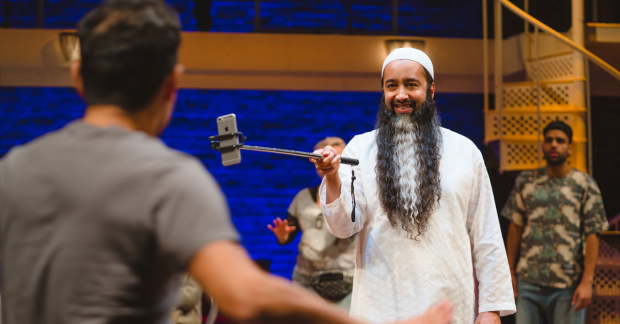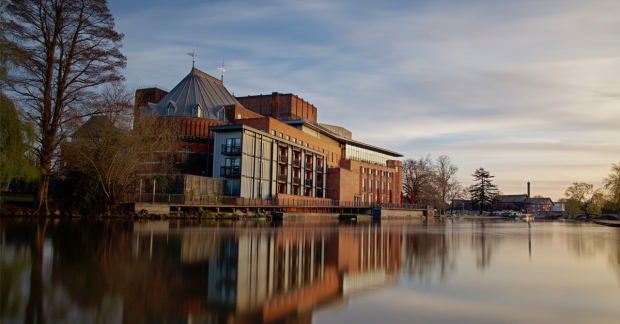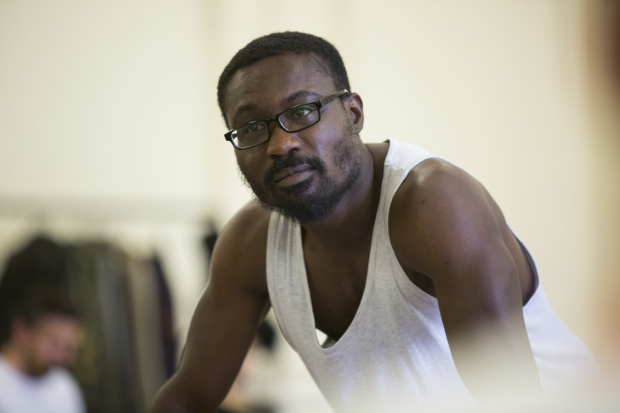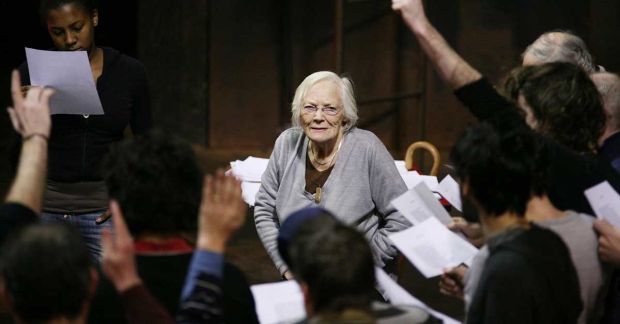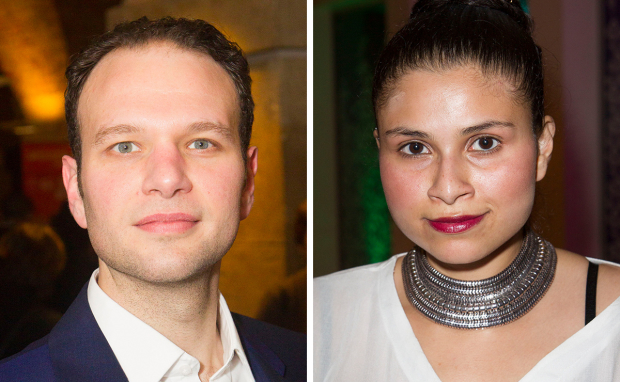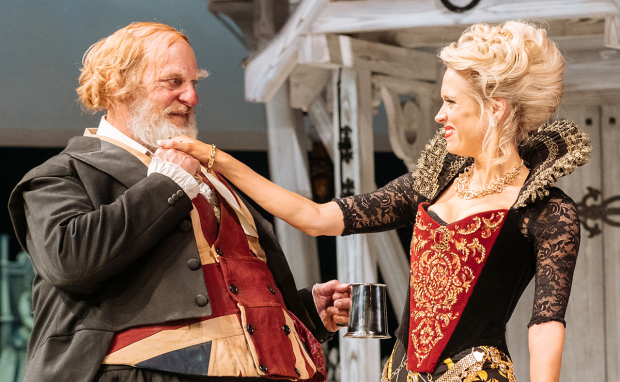Review: Troilus and Cressida (Royal Shakespeare Theatre)
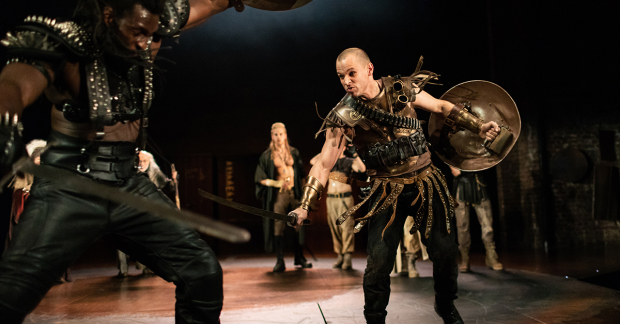
© RSC, photo by Helen Maybanks
Gregory Doran's epic Mad Max post-apocalypse style Troilus and Cressida, with its swaggering yet flawed superheroes and ill-fated young lovers, opens with a clash of percussion instruments so loud, the night I saw it many of the audience jumped in their seats.
The Scottish virtuoso percussionist Evelyn Glennie has composed her first ever theatre score and it is so phenomenally good you can feel every beat – be it a tank drum, vibraphone or an oil can, "the rhythm of war" is almost deafening at times.
Hanging above the stage is what looks like a giant sculptural lampshade or art installation of random upcycled copper objects – which light up and transform into musical instruments at different points of the production. Ingeniously, from this stunning centrepiece descends a beautifully lit metal sphere. Inside is a glittering Helen of Troy and her sleeping lover Paris, whose affair triggered the Trojan war – now seven years in. Seconds later leather-clad warriors on motorbikes roar onto the stage with Theo Ogundipe's Ajax – a giant of a man on stilts wearing a Mohican – towering over Sheila Reid's pocket-sized Thersites in a thrilling, stylish opening scene.
Troilus and Cressida's relationship in many ways feels like a modern love story – more real in its failings. The young couple's ill-fated romance is the emotional beating heart of Shakespeare's 1602 play.
RSC veteran Oliver Ford Davies is captivating and endearing as Cressida's amusing doddery uncle Pandarus, who acts as go-between to the lovers. I loved the scene where he introduces her to a line-up of Troy's warriors, excitedly bigging-up Troilus' qualities so loudly the soldier overhears and self-consciously starts to preen himself, then trips up. Once Troilus has walked past, Pandarus casually shrugs off the rest of the men as "chaff and bran; porridge after meat".
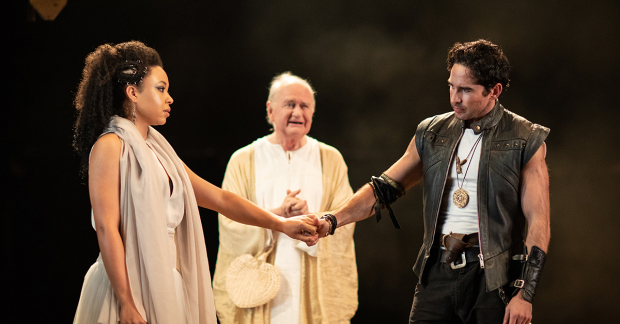
© RSC, photo by Helen Maybanks
The stage bristles with sexual chemistry and nervous tension between the infatuated young couple. Amber James' Cressida is no wallflower. In a strong, powerful performance her Cressida is a razor-sharp, street-wise and self-aware 20-something who refuses to be weakened by her feelings for Troilus. She looks edgy too, in a V-necked white chiffon dress, accessorised with fingerless leather gloves and long dangling statement earrings. Gavin Fowler's Troilus, in leather gilet, armoured vest and combats, is "giddy" and awkward, but once at ease he turns into a smooth-talking charmer.
We see Pandarus' gradual decline following his niece's infamous fling with her Greek guard Diomed. The complexities of character are well examined here. As well as Troilus' anger at being cheated on; we see the betrayal from Cressida's point of view as her inner-hurt is displayed in a raw outburst.
Doran has gathered a fine cast of eloquent women to play traditionally male roles in this gender-equal production – Adjoa Andoh as Ulysses, Suzanne Bertish as Greek general Agamemnon and Amanda Harris as Trojan military commander Aeneas. Scottish actor Reid's "tiny rogue" Thersites provides a satiric biting commentary – though her speech is occasionally muffled.
The Greek God-like warriors have a real comic book quality – bare-chested, good-looking ‘giants' with rippling biceps and six-packs. Shakespeare cynically turns Homer's Iliad on its head – these 'super-heroes' are all flawed with weaknesses, vanities and enormous egos.
Theo Ogundipe earns more than a few laughs with his comedic performance as dim-witted Ajax, as does Andrew Langtree as Helen's cuckolded husband Menelaus. Bisexual war hero Achilles – Andy Apollo – has given up on the war to hang-out with James Cooney's Patroclus – described by Thersites as his "masculine whore". Ulysses unleashes a cunning plan to spur him back into action and we witness some brilliantly choreographed fight scenes.
Matt Daw's cinematic lighting is blindingly good. As Achilles and his military soldiers ambush unarmed heroic Hector – a calm, measured Daniel Hawksford – a huge cluster of amber lights across the width of the stage lower, mimic the movement of a setting sun. Interestingly, Daw has also designed lighting for world tours by The XX, Damian Rice, Sigur Ros and Bjork.
This is a very noisy production from the revving of motorbikes to Glennie's industrial-sounding score and the hysterical high-pitched screams of distraught Cassandra – King Priam's prophetic daughter – an animated performance by Charlotte Arrowsmith, the first deaf actor in an RSC play.
Touchingly, Doran, artistic director of the RSC, has dedicated this production to the late RSC director and teacher John Barton who died in January aged 90. Troilus and Cressida was Barton's favourite Shakespeare and one he directed three times for the company. Some of his fascinating handwritten rehearsal room notes – posted to Doran by his sister following his death – are published in the programme.
A hugely entertaining and engrossing three-hour watch and one, I imagine, Barton would have thoroughly enjoyed.



